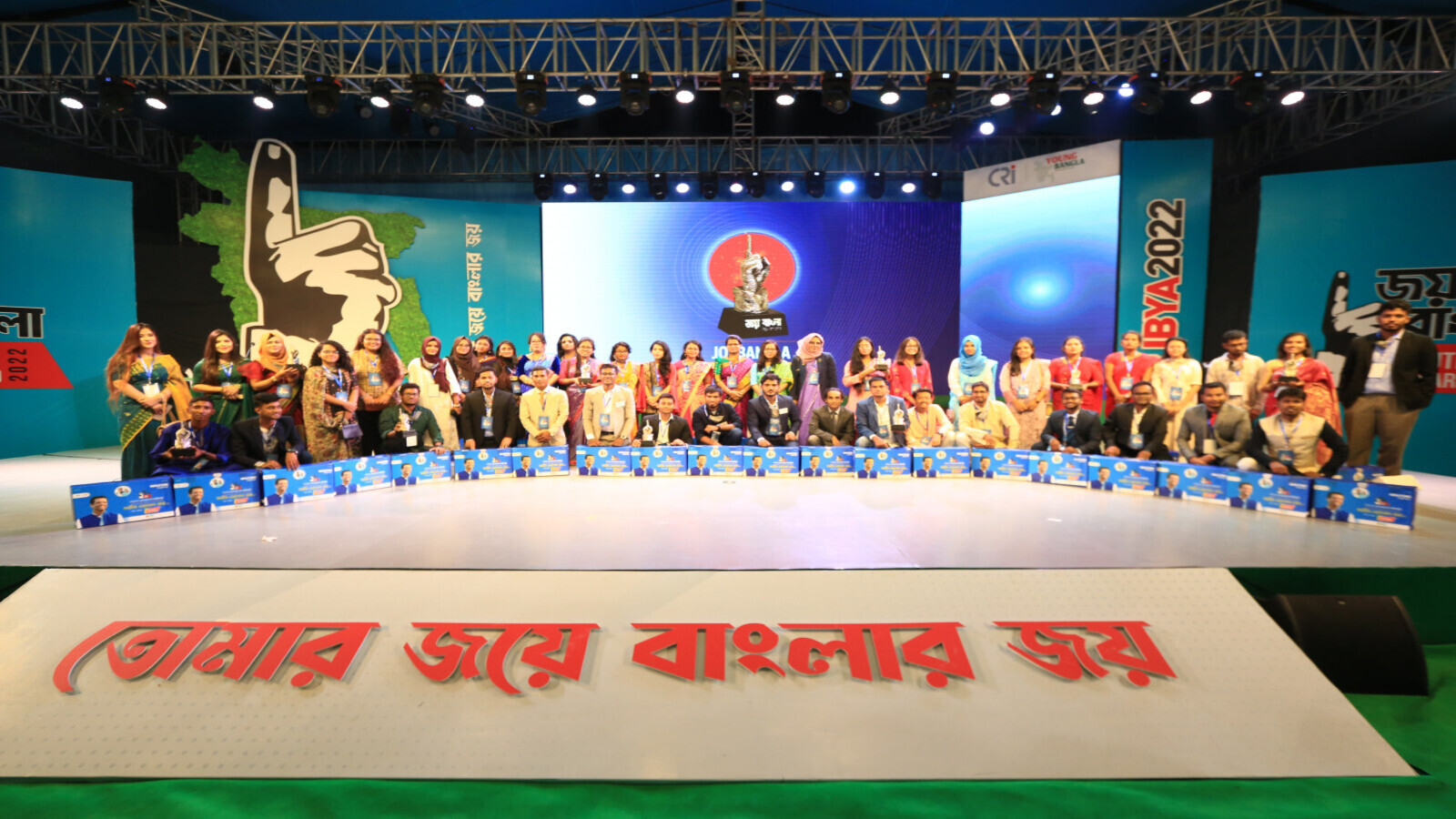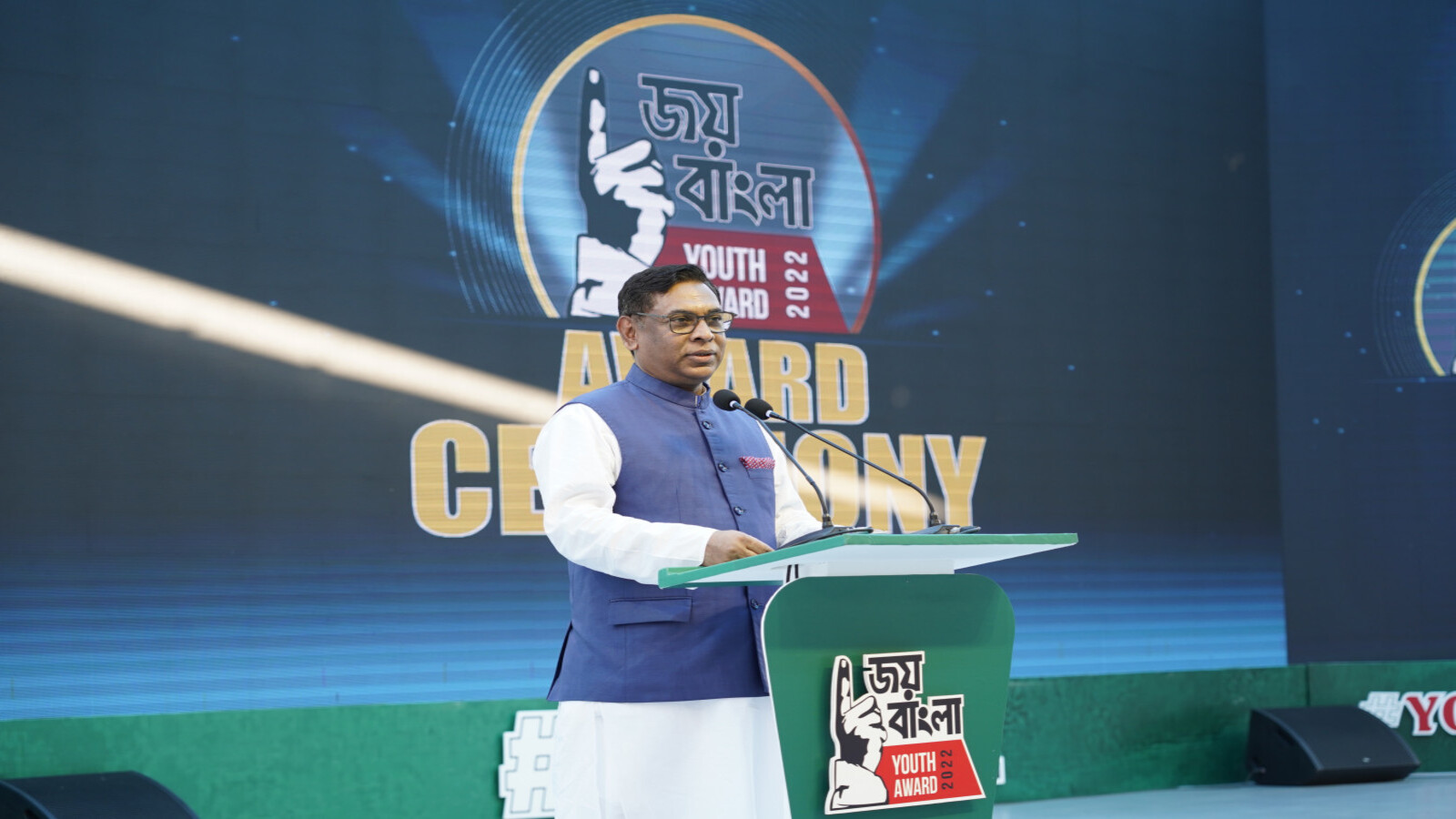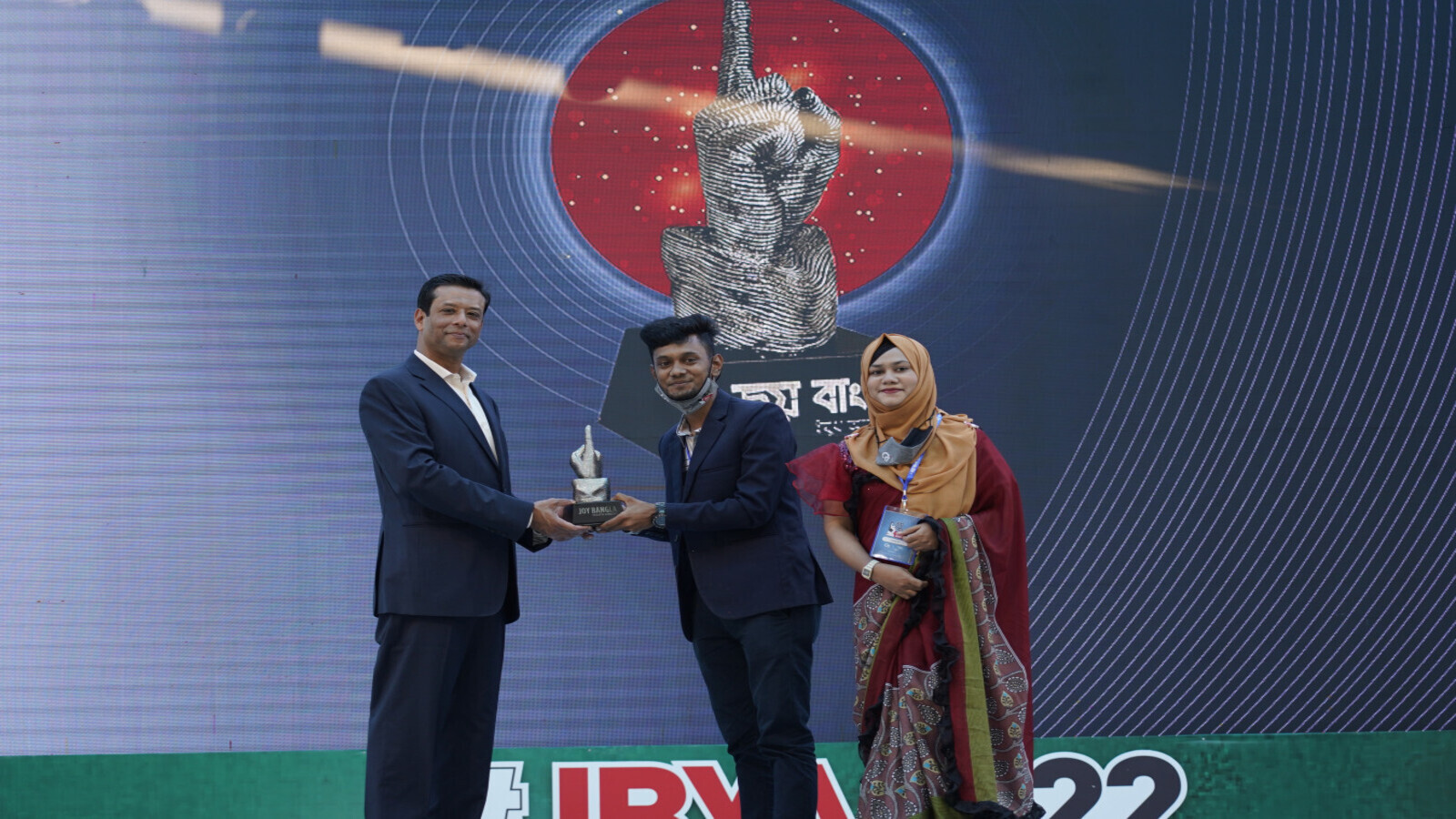Joy Bangla Youth Award: Recognising the next generation of trailblazers
Joy Bangla Youth Award: Recognising the next generation of trailblazers
From a list of 600 potential candidates, Young Bangla recognised ten young leaders for their contribution to the development of those around them
Since long before the independence of Bangladesh in 1971, the youth have always been at the forefront of every political and socio-economic struggle. Albeit in different forms, this indomitable spirit of the youth persisted long after independence and led to the foundation of many organisations dedicated to the development of the most marginalised people of the country.
In 2015, the Centre for Research and Information (CRI), a nonprofit organisation, launched the Joy Bangla Youth Award to recognise these young trailblazers through its Young Bangla platform.
On 12 November, the sixth edition of the Joy Bangla Youth Award ceremony took place at Sheikh Hasina National Institute of Youth Development in Savar.
Youth organisations applied under the following categories – Women Empowerment, Child Rights, Empowering the People with Disabilities, Empowering Vulnerable People, Employment and Innovation, Creativity and Recreation, Knowledge and Capacity Development, Empowering Extreme Poor, Environment and Climate Change Activity, Health Care and Awareness, Sociocultural Initiatives, Disaster Risk Reduction and Emergency.

From among 600 candidates, Youth Bangla selected 10 young leaders whose contribution propels toward prosperity. uuid-in-package:3d7a8d35-e962-546a-8652-546ae9623d7a
Winners of Joy Bangla Youth Award 2022
Robolife Technologies: Founded in 2018, Robolife Technology has been providing affordable prosthetic hands to people whose arms were lost in injury or had to be amputated. Until now, the organisation has helped at least 20 individuals. Currently, it provides artificial hands at Tk 30,000 and is trying to reduce costs. The company has also exported some prosthetics to Saudi Arabia and Turkey. Joy Barua Lablu, the founder and CEO of Robolife, said, “our technology enables those without limbs to control robotic hands with neuro-linked assistance. This works with the aid of nerve signals stemming from the user’s brain.”
BK School of Research: BK School of Research (BKSR) is a research organisation that works in the field of business, economics, social sciences, and humanities. Bezon Kumar, director of the organisation, and his team are working with 55 experts, 100 research assistants, and 300 data collectors from 22 countries. They have published research articles in 10 journals so far. Bezon said, “BKSR conducts various activities including seminars, training, and workshops with the help of national and international skilled researchers and professors.”
Recently, they published a research paper on the impact of Covid-19 on Rohingya women and adolescents.
Boson Biggan Sangho: Since 2014, Boson Biggan Sangho (Boson Science Club) inspires students to study maths and science. They are planning to organise a science competition to encourage more women to study science and mathematics. The club is affiliated with Bangladesh Mathematical Olympiad and was awarded the Best Math Club Award in 2019. The members of this club have won numerous awards at institutional, regional, and national competitions.

The President of Boson Biggan Sangho, Muhammad Mazedur Rahman, said, “we aim to build a science-based society. We hold various workshops on the subjects and publish a science magazine – Biggan Batayan.”
Youth Planet: Since its establishment in 2018, Youth Planet has been trying to challenge the status quo by breaking social stigmas against women.
Youth Planet’s activity helped increase menstrual hygiene awareness in Nandail Upazila in Mymensingh by up to 50%. Moreover, it provides youth leadership training, women entrepreneurship, and digital marketing training through the Ministry of Youth and Sports.
A B M Mahmodul Hasan, founder of Youth Planet, said that the organisation primarily raises awareness about the problems that occur during adolescence and menstrual health.
BigyanPriyo: Muhammad Shaon Mahmud is the founder and president of BigyanPriyo, a platform that produces various content regarding science advancements news, blogs, infographics, and audio-visuals; and disseminating scientific information related to daily life.
The social media platform was established in 2017. Its first project was to develop a digital science dictionary in Bangla. They have several school-based activities and publish an online magazine called ‘Nebula’ to promote science among young students.
“It is the largest science-based platform in Bangladesh to build a superstition-free society and drive people towards science and science education,” said Shaon.
Mojar School: Mojar School was founded in 2013, with the aim to provide free education to street children in a fun and engaging manner. It has offered free education to 1,000 underprivileged street children in the National Curriculum from pre-primary to seventh grade. It has also provided non-formal education to another 1,000 underprivileged street children for nearly 10 years. Moreover, it runs 10 schools all over Dhaka.
Arian Arif, founder and Executive Director of Mojar School, said, “we have been working with street children since 2013. Now we are planning to introduce vocational education.”

Bindu: Founded in 2018, Bindu Women’s Development Organisation is a youth-led feminist organisation focusing on climate change and women’s empowerment.
The organisation works to protect the rights of people affected by natural disasters in coastal areas, especially women. They have convinced the local government to repair a 300m embankment destroyed by Cyclone Amphan. Moreover, the organisation also works to prevent violence against women, dowry, sexual harassment and child rights.
Jannatul Mawa serves as its Executive Director. She said, “Bindu is dedicated to defending human rights, empowering women, and promoting equality. It also works to actualise the Sustainable Development Goals locally, ensuring the quality of education, climate justice particularly in coastal regions.”
Milon Smrity Pathagar: The organisation has established a total of 16 libraries in Sarishabari Upazila of Jamalpur to encourage local youths to read. Additionally, they attract readers of all ages, including school and college students, through their children’s library, four roadside libraries, and three railway station libraries.
Asaduzzaman (Atif Asad), founder and President of the library, dreams of an educated community. He said that they have founded 16 libraries through which about 1,500-2,000 readers get regular access to books every month.

Switch Bangladesh Foundation: Md. Muinul Ahsan Faysal is the General Secretary of Switch Bangladesh Foundation. His organisation has been working since 2011 to ensure the fundamental rights of underprivileged children, like education, health, clothing, and shelter.
They are running a free school with 13 full-time teachers. Moreover, the organisation provides wheelchairs to people with special needs and senior citizens at the Ekushey Book Fair every year. It also provides vocational training to destitute women and youth.
Faysal said, “We are teaching more than four hundred underprivileged children. Our core goal is to develop them as future leaders.”
Ucchash: The organisation has promoted volunteering in the southern belt of Bangladesh since its establishment in 2017. Prosenjit Kumar Saha, Founder of Ucchash, and his crew have three work bases in Bhola, Barisal, and Dhaka.

They are also currently running three sustainable development projects called ‘Shwapno Puron Biddaniketon’, ‘Project Joyi’, and ‘Project Shabolombi’. These projects focus on free education for underprivileged children, skill development training for the low-income and unemployed people, sexual and reproductive health awareness among adolescents, and Covid-19 response activities. Furthermore, they run a school with 70 students.
Disclaimer: This article first appeared on TBS on 17 November 2022 and can be found at Joy Bangla Youth Award


